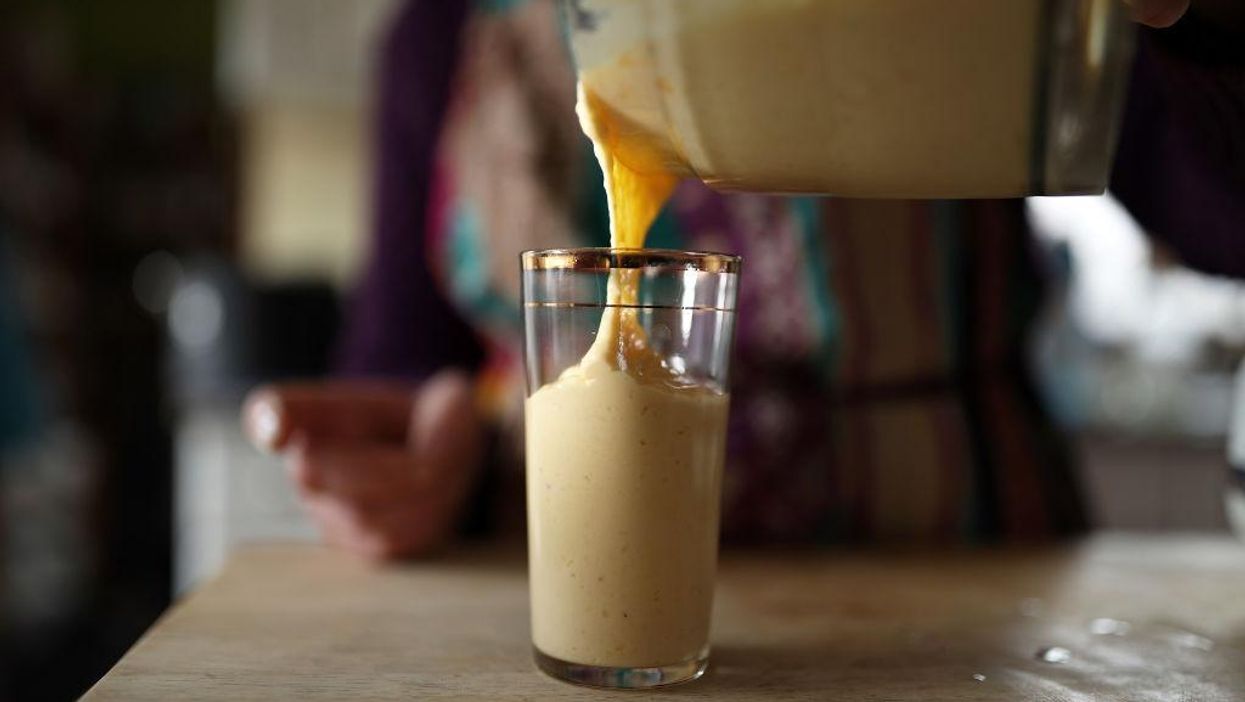
Ben McCanna/Portland Press Herald via Getty Images

What followed was 'the worst eight hours' of his life, but he'd do it all over again.
A 26-year-old man in Baltimore, Maryland, recently volunteered to drink a shot glass' worth of ominous, potentially disease-ridden liquid for scientific research, knowing full well it could cause him to contract an excruciating and life-threatening case of dysentery.
It did, and what followed were "the worst eight hours" of his life. Yet Jake Eberts told Insider he'd do it all over again for both the $7,000 paycheck and the humanitarian cause.
Eberts downed the "dysentery smoothie" on April 5 as part of an 11-day inpatient study at the University of Maryland intended to test the efficacy of an investigational vaccine against Shigella, the bacteria that produces dysentery in humans.
The study's aim was simple: to challenge 16 volunteers — some with the vaccine, some not — by giving them either the dangerous pathogen or a placebo and seeing how their bodies handled it. Eberts believes he was in the worst-case non-vaccinated, non-placebo group.
"If I did get the vaccine, that is really bad news for the vaccine," he told Insider, adding that he "truly felt like I could not move" and that even getting up to go to the bathroom required a "Herculean effort."
"Every movement in the bathroom, to get up to wash my hands or to grab a paper towel, I would lie back down on the ground and just sit there for five minutes," he said.
His symptoms reportedly began to escalate about 40 hours after he ingested the liquid. At first, they felt like a stomach bug, but then they progressed into a fever, diarrhea, and bloody stool.
However, despite feeling "exhausted," "miserable," and like he was at "death's door," Eberts said he never felt afraid.
"I knew this is something I signed up for, and it will pass, and I'm not going to die or anything. But even if I had been just at home and had somehow come across this, I would've been terrified because it was just awful. And the deterioration was so rapid," he recalled.
"I don't want to make myself out to be Mother Teresa here — would not have done this for free. It's a big ask to ask someone to get dysentery," he added in conversation with Insider after his trial had been completed. "The entire time, I was like, 'Wow, this is an awful disease.' And I just got really emotional, probably also because I was just delirious, about the thought of small children in the developing world dealing with this."
Eberts also documented his journey on Twitter, announcing in a first tweet, "Tomorrow I am going to be deliberately infected with dysentery and kept in a quarantine facility for 11 days as part of a Phase IIc vaccine clinical trial. That sounds dark but I assure you I am extremely excited to overshare this journey with everyone."
Later, when asked, "Why the hell would you do this?" Eberts replied, "3 reasons: 1, to help the less fortunate and advance modern medicine (read: to be smarmy and self-righteous); 2, I get paid enough money to basically cover rent for the rest of the year; 3, I get paid even if I don't get dysentery."
According to the study's lead researcher, Dr. Wilbur Chen, Eberts' sordid enthusiasm encouraged "20-30" others to sign up for various other vaccine trials. Eberts was also able to raise more than $24,000 for the Water Project while isolated in the trial.
"I've been spending my career trying to tackle this, and it's always a challenge to try to find willing volunteers," Chen noted, adding "He was just sharing from the heart, and I think people liked it."
Chen told Insider that if the vaccine, developed by scientists at the Institut Pasteur in France, is found to be well tolerated and effective in trial participants, it will move on to larger-scale testing. The researcher said it would need to demonstrate 70% protection to be moved along in the process and eventually be made available worldwide.
Dysentery is still common in many third-world countries, killing hundreds of thousands of children and elderly adults every year. It remains the second-leading cause of diarrhea death globally, after rotavirus.
People contract it by coming in contact with Shigella through contaminated food or water or direct contact with an infected person's fecal matter.